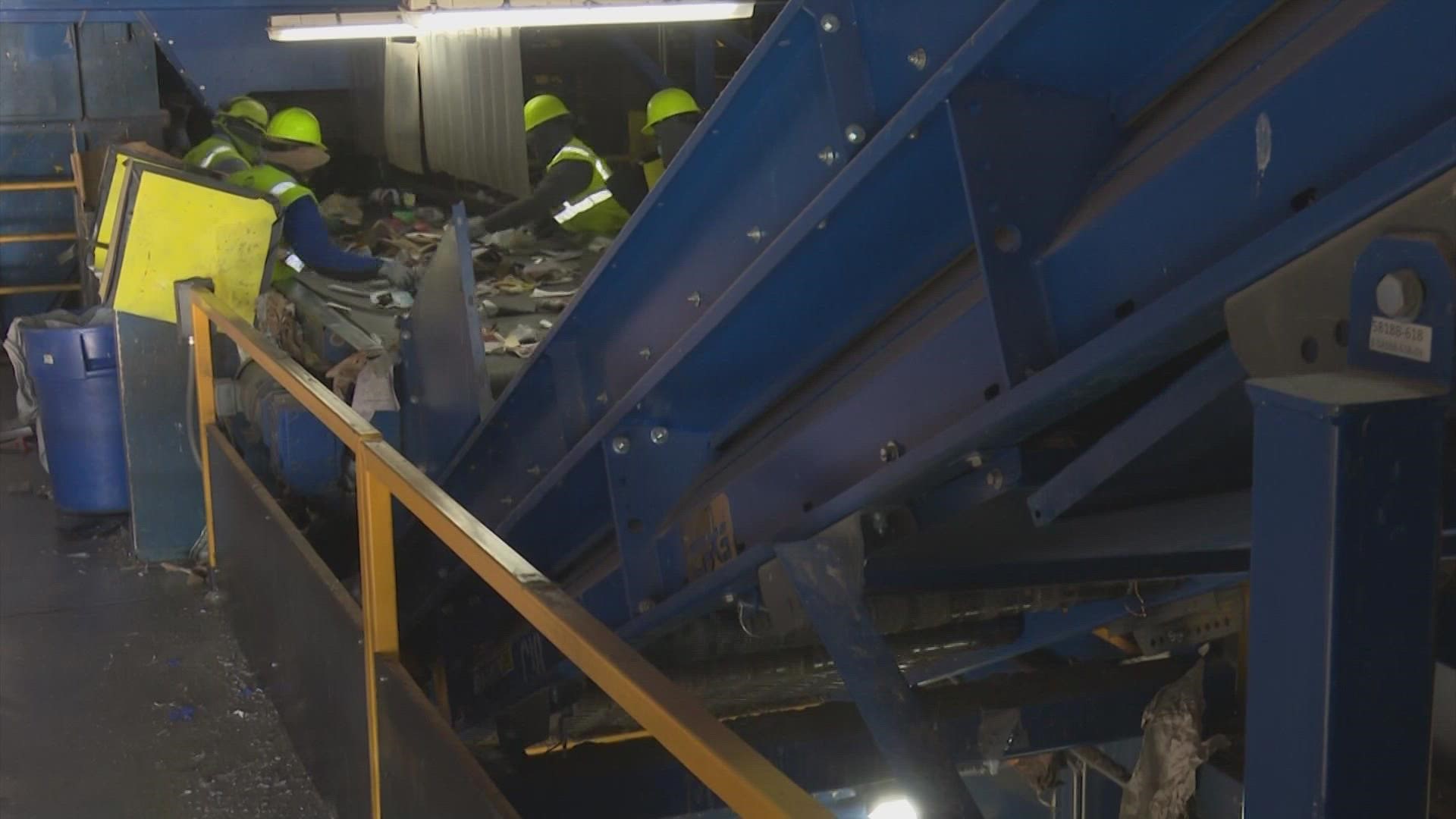SEATTLE — There are trends in a lack of knowledge regarding proper recycling.
That's according to a survey from the recycling company Republic Services, which analyzed the recycling knowledge of more than 2,000 Americans. It shows 64% of respondents say they know what types of plastics can be recycled, but 61% incorrectly believe flexible plastics, including grocery bags and bubble wrap, are recyclable in their curbside bins.
Pete Keller, Republic Services VP of recycling and sustainability, said plastics are where most people get confused.
“As a country, as a society, we do a really good job with cardboard, paper, aluminum, tin, glass. People recognize that. It’s recognized as highly recyclable. It’s the plastic material that causes the most confusion,” said Keller.
His advice is to not overthink it. Generally speaking, there are a few rules to follow.
“Don’t focus on the number one, number two, number five," Keller said. "Focus on what the type of container is. If it’s rigid, has a cap or a lid, it’s recyclable. We want it. If it’s flexible, if it’s a clamshell, if it’s multi-material, that stuff doesn’t belong here. It belongs in your garbage can.”
He said some of the most common items that are sent to the recycling bin that should not be recycled are plastic bags, bubble wrap and plastic wrappers. Also, he advised people to not put their recyclables in plastic bags, because it can create a hazard at the plant.
Keller added that people in the Pacific Northwest are some of the best at recycling. He said the recycling rate in the United States is 32% but is in the mid-50s in the Pacific Northwest.
This is due, in part, to the longevity of the recycling programs. He said the recycling infrastructure in western Washington has been around for 15-20 years longer than in other parts of the country.
“What we did here, our partnership with the City of Seattle really spilled over into other parts of the country," Keller said. "Seattle was really one of the pioneers in single-stream recycling.”
He said Republic Services' SODO plant processes 75 tons of recyclables an hour and close to 200,000 tons of recyclables a year.

